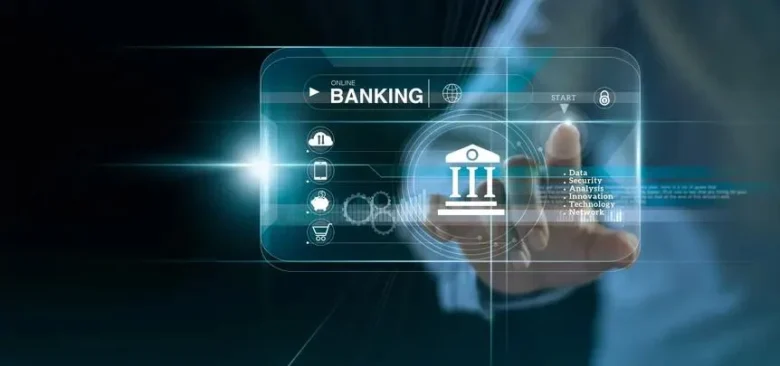Individuals and organizations have long relied on banks to securely store, transfer, and manage their money. Banking has shifted from paper-based systems and branches to digital and mobile platforms. Smart banking technology is transforming the way we use financial services. Thanks to artificial intelligence, automation, data analytics, and mobile connectivity, smart banking is changing the way we handle money and setting a new standard for convenience, speed, and personalization in financial services.
From Traditional Banks to Smart Banking Systems
Long lines, paper documents, and limited hours plagued traditional banks for decades. Even depositing checks and transferring money required a visit to a branch. Smart banking has radically changed this experience. Today, smart technology allows people to access a wide range of services 24/7 via smartphone or computer. This shift has removed many barriers, allowing customers to bank anytime, anywhere. Cloud computing, mobile apps, and secure identity verification processes have improved the user experience, speed, and reliability.
Artificial Intelligence in Modern Banking
Artificial intelligence is driving the development of smart banking technology. AI helps banks assess customer behavior, identify patterns, and customize services. AI can identify unusual transactions and provide real-time fraud alerts. It also offers personalized recommendations, spending insights, and automated transaction classification to help users manage their finances. These systems improve over time using machine learning, providing more accurate recommendations and increased security. Artificial intelligence makes banking more efficient, secure, and convenient, and builds trust.
Virtual Assistants and Chatbots Improve Customer Service
Chatbots and virtual assistants are revolutionizing customer service in smart banking. These 24/7 digital assistants answer questions, resolve issues, and guide customers through their banking needs. Virtual assistants can quickly check balances, set up recurring payments, and dispute charges without waiting for a representative. Such functionality not only saves customers time but also reduces the workload of call centers and customer service agents, allowing banks to improve operational efficiency.
The Transformation of Mobile Banking and App-Based Services
Smart banking relies on mobile apps. These apps serve as digital wallets, financial trackers, and investment hubs. They offer smartphone-based mobile check deposits, biometric authentication, account transfers, bill payments, and budgeting tools. Financial services seamlessly integrated into mobile platforms give customers more control over their money and access to real-time updates and notifications to make informed decisions. Mobile banking has become popular among millions of users worldwide due to its convenience.
Biometrics Enhance Financial Data Protection
Biometrics for financial data security is a groundbreaking innovation in smart banking. Fingerprint, face, voice, and iris scans are used to restrict access to accounts. This additional security measure is more secure and convenient than passwords. Biometrics allows consumers to log in quickly and transact with confidence, knowing that their data is protected by advanced technology to prevent fraud and identity theft.
Smart Budgeting and Automatic Savings
Besides convenience, smart banking can help customers make smarter financial decisions. Many smart banking platforms offer budgeting features that assess expenses and provide savings advice. Some also offer automatic savings options that deposit small amounts based on spending and income. These smart technologies make it easy for consumers to manage their money. Smart banking simplifies budgeting and saving, making financial well-being accessible to everyone.
Contactless Payments and Digital Wallet Integration
Another example of the transformation of smart banking is contactless payments. Whether you use a card, scan a QR code, or use a smartphone, digital payments are faster and more secure than ever . Banks are integrating digital wallets like Apple Pay, Google Pay, and Samsung Pay, allowing customers to pay without cash or cards. This shift not only improves hygiene and convenience but also speeds up transactions and reduces card skimming and data breaches.
Financial Inclusivity and Access for the Underserved
Financial inclusion depends on smart banking technology. Due to geographical, economic, or social constraints, many countries lack access to basic banking services. Residents of remote areas now have access to savings, loans, and insurance through mobile banking and digital financial platforms. Users only need a smartphone and an internet connection to open an account, apply for credit, and participate in the digital economy. The growth of these services helps communities escape poverty and stimulates global economic development.
Timely Notifications and Money Management
Real-time notifications and updates are a key benefit of smart banking. Whether it’s a large transaction, a low balance, or a bill reminder, customers stay informed and in control of their money. Notifications can prevent overdrafts, detect suspicious activity, and encourage money management. By making people aware of their finances, smart banking promotes financial responsibility and reduces mismanagement.
The Future and Prospects of Smart Banking
Thanks to technological advancements, the future of smart banking looks brighter. We can expect predictive analytics to estimate spending, machine learning to provide more personalized recommendations, and blockchain to increase the transparency and security of financial transactions. Voice-activated banking, smart home integration, and AI-driven financial planning are also on the horizon. Banks will likely focus on building digital ecosystems that encompass savings, loans, insurance, and investments, integrating them into a single platform. These developments will further integrate banking into our daily lives, making financial management safer, more intelligent, and easier.
Conclusion
Smart banking technologies are revolutionizing financial services, making them more accessible, efficient, and user-friendly. These developments are improving every aspect of banking, from AI-driven insights and biometric security to mobile apps and digital wallets. They help customers manage their money, make smarter decisions, and simplify daily transactions. As technology advances, smart banking will become more personalized, automated, and secure. Staying ahead in the modern financial world requires embracing these developments.
FAQs
1. What is smart banking technology?
Smart banking technology uses AI, mobile apps, and biometric security to simplify banking.
2. Is mobile banking safe?
Most mobile banking apps protect financial data through encryption, biometric authentication, and secure logins.
3. How do smart banking tools save money?
Many smart banking services automate savings, budgeting, and spending data, improving money management.
4. Smart banking without branches?
With smart banking, you can do almost all your banking on your phone or computer, without having to visit a branch.
5. Will smart banking replace traditional banks?
To compete and meet customer expectations, traditional banks are integrating smart technologies into their services as physical branches become fewer and fewer.




